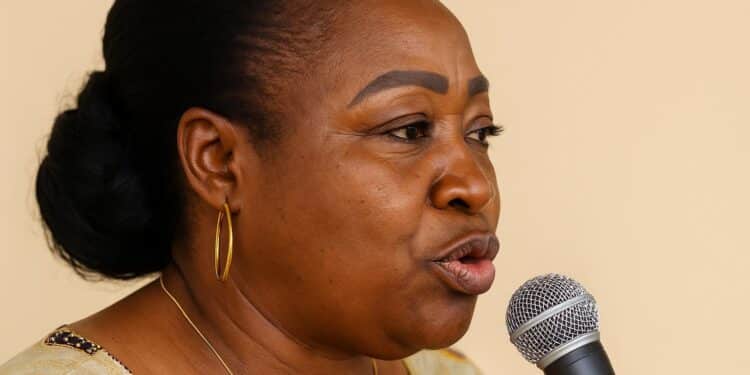Symbolic Publication Date
Choosing 14 August, one day before Congo-Brazzaville marks sixty-five years of sovereignty, Franco-Congolese scholar Milie Théodora Miéré purposefully situates her forthcoming volume within a national moment of reflection. The date frames corporate culture as a component of state-building and modern diplomacy.
While government ceremonies in Brazzaville will highlight political milestones, Miéré’s book reminds boardrooms and ministries alike that the daily fabric of firms equally shapes national narratives. Specialists in economic diplomacy say such scholarly work subtly broadens the independence commemoration beyond sovereignty toward performance and innovation.
Author’s Academic Footprint
Based in Versailles yet anchored in Congolese heritage, Miéré holds a doctorate in information and communication sciences, lectures at Paris-Saclay, and directs research at Larequoi. Her trajectory illustrates the mobility of the African knowledge diaspora frequently cited by UNESCO as a vector of sustainable development.
Since 2022 she has published tributes to her parents, an exploration of digital mobilisation, and now turns to corporate identity. Colleagues describe her output as a patient cartography of the intangible assets—values, symbols and networks—that make organisations resilient amid accelerating technological change.
Revisiting the 1980s Corporate Turn
The forthcoming title, Culture or Cultures of Enterprise, revisits debates of the 1980s, when French and Anglo-American firms popularised culture as a management lever. By excavating that period, Miéré reconstructs the ideological scaffolding that still informs how African subsidiaries interpret leadership imported from abroad.
She argues that a single narrative seldom fits post-colonial workplaces layered with indigenous norms, socialist legacies, international standards and, increasingly, digital platforms. The plurality embedded in her subtitle opens analytical space for Congolese managers who juggle linguistic diversity, generational expectations and continental integration initiatives such as AfCFTA.
External observers note the timing aligns with Congo’s renewed push to attract responsible investors in telecoms, mining and agro-industry. A nuanced discussion of corporate culture, they say, can help officials present the republic as not only resource-rich but also institutionally prepared for transparent partnerships.
Communication as Change Architecture
Central to Miéré’s thesis is the conviction that organised meaning-making precedes durable reform. She positions communication not as messaging but as architecture: the set of formal and informal rituals through which employees decipher strategy, assign purpose to metrics, and ultimately volunteer discretionary energy to collective goals.
Such a perspective resonates with current public-sector programmes in Brazzaville, where civil-service modernisation relies on what a senior official recently termed the ‘psychology of performance’. By highlighting the intangible layer, the book aligns with national reforms without presuming to prescribe policy.
From a diplomatic standpoint, scholars of public diplomacy often stress that management texts can serve as soft literature, circulating visions of stability among foreign chambers of commerce. Miéré’s emphasis on codified values may therefore complement government white papers promoting Congo-Brazzaville as a predictable partner.
Gendered Perspective in Leadership Studies
The author’s voice also enriches a still male-dominated corpus on African corporate transformation. A 2023 report by the African Union noted that only eighteen percent of peer-reviewed articles on management in Africa were led by women. Miéré’s contribution thus embodies incremental progress toward scholarly parity.
Within Congo itself, female intellectuals have steadily gained public visibility, from economist Chancelia Mouangou to historian Stéphanie Bouvier. By joining that cohort, Miéré reinforces an inclusive national brand that development partners increasingly factor into governance risk assessments.
Anticipated Reception and Next Steps
Booksellers in Paris and Brazzaville report healthy pre-order interest, citing university reading lists and executive-education curricula. L’Harmattan plans a hybrid launch featuring a livestream roundtable where Congolese entrepreneurs will debate the compatibility of collective values with aggressive growth targets.
Diplomats stationed in the region are expected to attend, viewing the session as an informal barometer of private-sector sentiment. A senior European envoy observed that scholarly gatherings often reveal nuanced perceptions that do not surface in formal bilateral dialogues.
For Miéré, the book is unlikely to mark an endpoint. Sources close to her research group indicate she is compiling case studies on telecommunications firms across Central Africa, with preliminary findings suggesting that network infrastructure investments correlate with distinct cultural archetypes inside line-management teams.
If published, that comparative project could inform regional regulators who are drafting cross-border roaming policies. By linking culture to market integration, Miéré would situate social science at the heart of the Central African Economic and Monetary Community’s ongoing agenda.
Until then, Culture or Cultures of Enterprise stands poised to enrich both academic libraries and corporate retreats, offering Congolese policymakers a mirror held by one of their own, and offering foreign observers a patterned narrative of a nation positioning cultural intelligence as a comparative advantage.
Strategic Outlook
Observers in multilateral agencies suggest the text may feed into capacity-building modules funded by the African Development Bank in 2025. Should that happen, Miéré’s scholarship would ripple beyond corporate suites, shaping the governance ecosystems that anchor Congo-Brazzaville’s long-term ambitious diversification strategy.












































